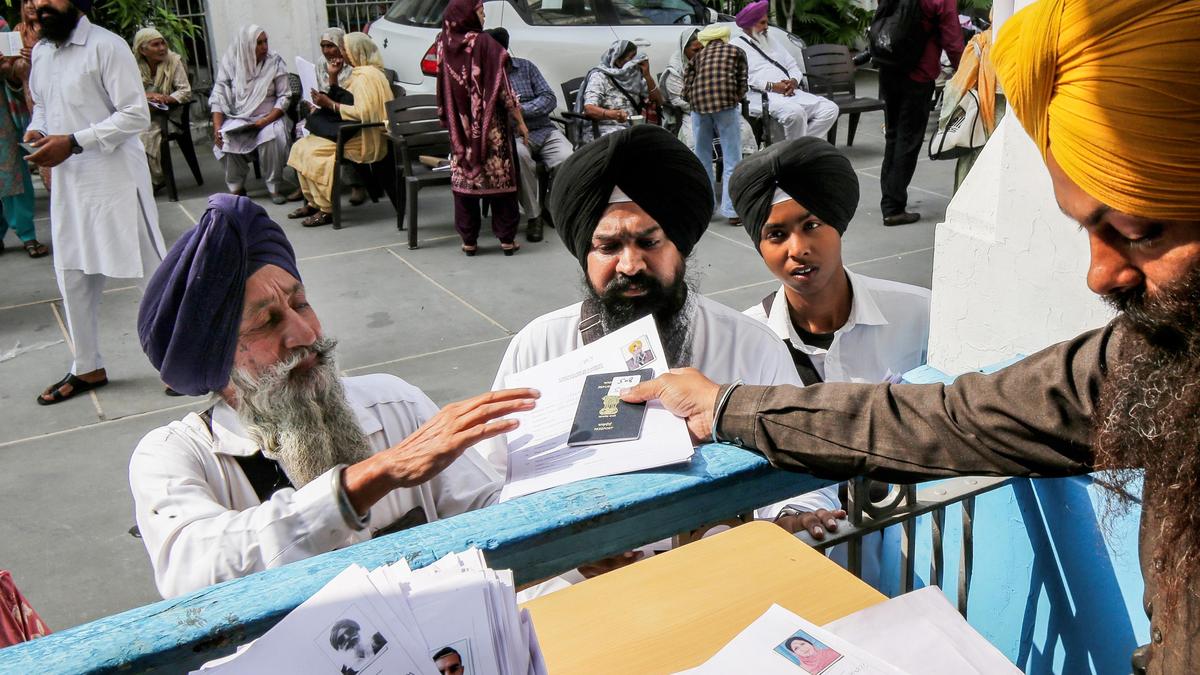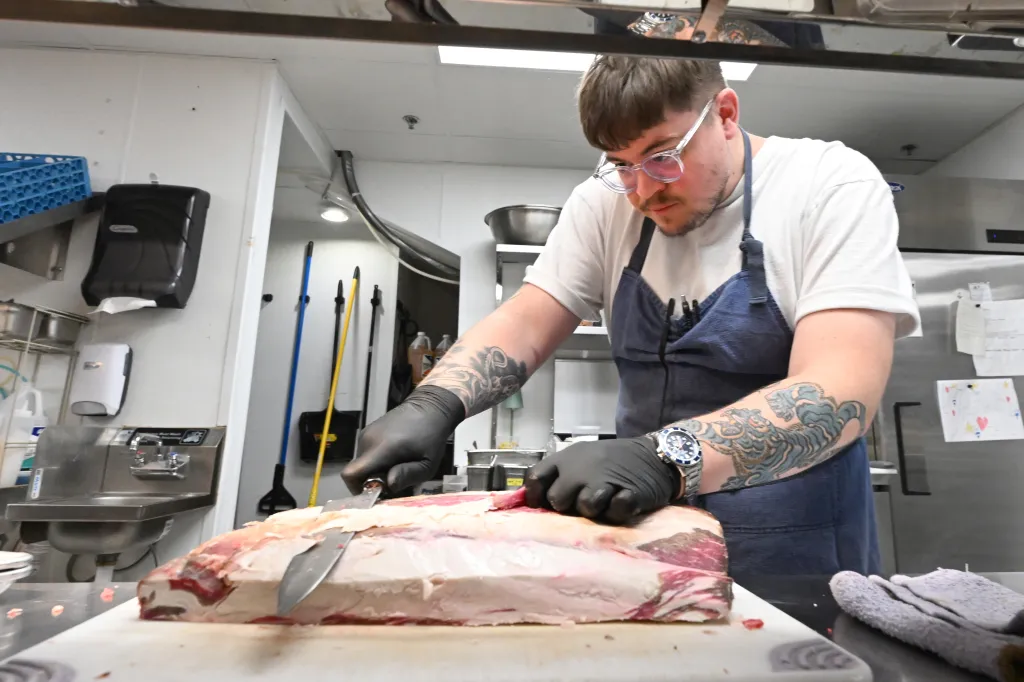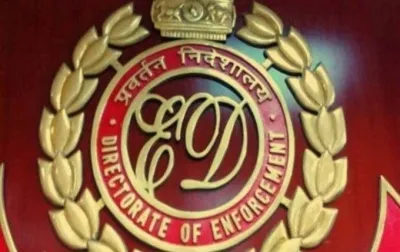Copyright thehindu

Weeks after he was told his pilgrimage to Sikh shrines in Pakistan, including Nankana Sahib, had been cancelled, Harjindarpal Singh’s disappointment turned to unbridled joy on Friday (October 31, 2025) as he received his passport and Pakistani visa. The Hoshiarpur resident is one of 2,100 Sikh pilgrims who were issued visas by the Pakistan High Commission in Delhi after the Indian government reversed its stand, allowing the groups to travel. “In September, when I received the news that our government was not allowing pilgrims to Nankana Sahib, I was taken aback and disappointed. I had been preparing for this journey for months,” the 50-year-old devotee told The Hindu. “This pilgrimage means everything to me. It’s not just a trip—it’s a spiritual calling,” he said. Mr. Singh, who collected his passport with the visa from the Shiromani Gurdwara Parbhandak Committee (SGPC) office in Amritsar, is part of the Jathas that will leave on November 4 over the Wagah border, and return on November 13. These groups, that plan to mark Sikh-founder Guru Nanak’s birth anniversary at his birthplace in Pakistan, will be the first to be allowed to travel to Pakistan since Operation Sindoor. Welcoming the government’s decision to reverse its earlier ban, SGPC secretary Partap Singh thanked both the Indian and Pakistani governments for facilitating the “smooth issuance of visas to the pilgrims”. Of the 2,100 pilgrims issued visas, 1,796 pilgrims are from Punjab, while others are from Haryana, Delhi, Uttarakhand, Jammu, and Uttar Pradesh, an SGPC official said. Also read:Indians and Pakistanis at Attari border: The people who bear the weight of a divided history U-turn on pilgrimages Meanwhile confusion prevails within the Centre over whose decision it was to stop and then restart the pilgrimages now, with the Ministry of Home Affairs and the Ministry of External Affairs silent on the reason for the decision. MEA officials said the decision was taken by the MHA, while an MHA official said the applications were processed on the basis of recommendation by the State government, but added that “it is MEA which decides if the jathaas could be given clearance.” On September 12, just as the Jathas were planning their visit to Pakistan, normally timed around Prakash Purb, or Guru Nanak’s birthday in November, the MHA sent notices to the State governments involved, to suspend all arrangements for the pilgrims. “Considering the prevailing security scenario with Pakistan, it would not be possible to send Sikh pilgrims’ jathas (groups) to Pakistan,” said the MHA’s notice to States governments , prompting calls from the Punjab government and SGPC leaders to reconsider the decision. Sources said the notice was rescinded less than a month later in early October, but did not explain the reasoning behind the u-turn. Both MEA and MHA officials declined to respond to questions from The Hindu about whether the security situation in Pakistan has now improved sufficiently for the groups to be allowed to cross the border. Kartarpur Sahib corridor shut In addition, while the Pakistan government said that the groups would be facilitated to travel to Kartarpur Sahib as well, the Kartarpur Sahib corridor inaugurated by both countries in 2020 remains closed, indicating they will take a longer road route to reach the shrines. The MHA website for the Kartarpur Corridor states that, “considering the extant security scenario, the services of Sri Kartarpur Sahib Corridor is suspended till further directions”. It is unclear whether other religious travel between the two countries, suspended since the India-Pakistan conflict in May after the Pahalgam attacks, will now be permitted as well. According to the 1974 Protocol on religious exchanges, India and Pakistan agreed to facilitate groups from various religious communities to visit holy shrines in each other’s countries, and thousands of Hindus, Muslims and Sikhs in both countries avail of the agreement each year. An official said that no request has been received from Pakistan in this regard. All existing visas to Pakistani nationals were revoked by India on April 24 after the Pahalgam attack, and the issuance of fresh visas for other travel, including for medical treatment, business and visiting relatives, still remain suspended, a move that Pakistan replicated for Indian citizens. (with inputs from Vijaita Singh)



